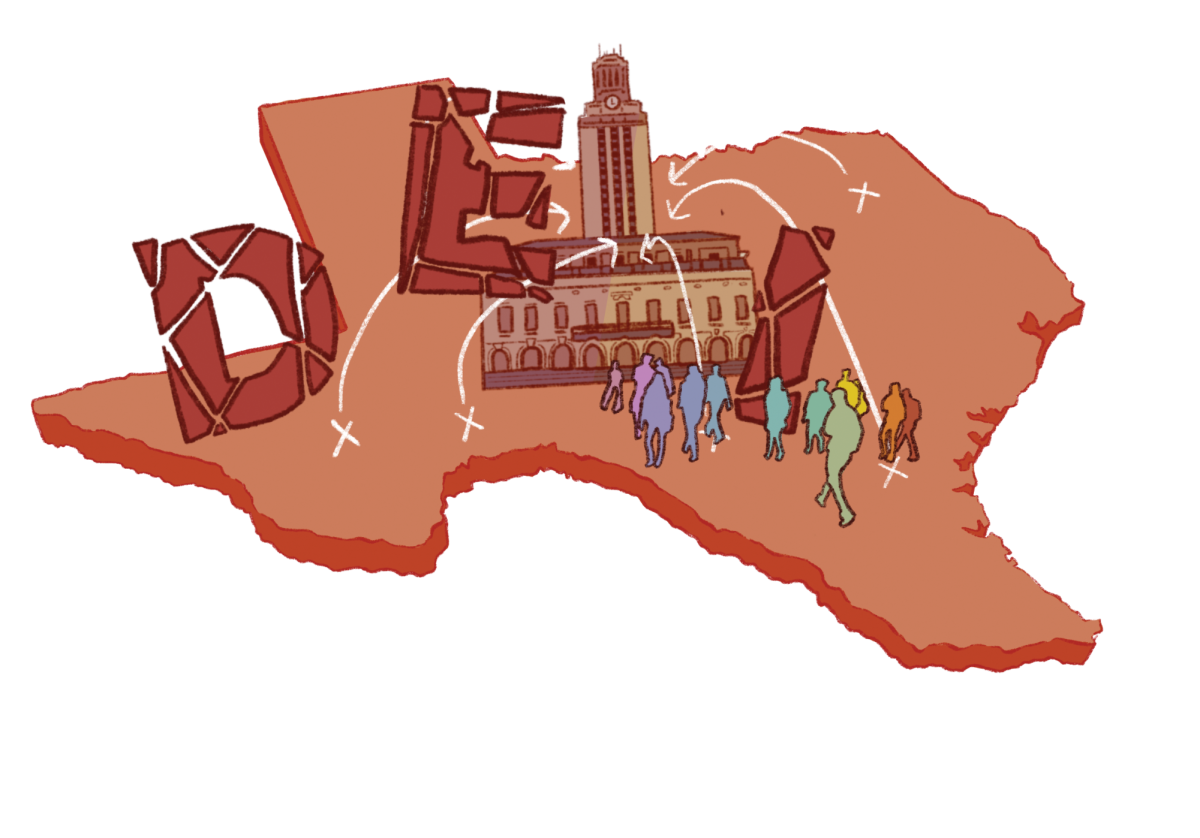Passed in April of 2023, Senate Bill 17 (SB17) went into effect earlier this year and bans Diversity, Equity, and Inclusion (DEI) offices and services from public universities. DEI is a set of university institutions and programs set up to help marginalized students transition to college and to adult life since the mid-1960s, according to The Conversation.
According to LASA College Counselor Vyasar Ganesan, DEI exists to help make students from diverse or underrepresented backgrounds feel more like they belong in educational spaces, by prioritizing inclusion. For LASA students going to university, and educators everywhere, this bill has a tremendous impact.
“I think it slows down the number of applications to schools that we [LASA] already weren’t sending a lot of apps to, Texas Tech, UTSA (University of Texas at San Antonio), UT El Paso (University of Texas at El Paso),” Ganesan said. “We don’t already send those kinds of schools a lot of students, but now we have less reason to. Now students feel like they have less incentive to want to be in those places.”
DEI provides students, as well as faculty, with resources like free counseling support, diverse events that reflect the university, and places to go to with concerns over classroom material. Many students value these resources, and without them, applicants may have different opinions of the schools, though it’s still too early to tell, according to Ganesan.
“My instinct is to always get scared, right?” Ganesan said. “[My instinct] is to always look at this and be terrified. But I have to remind myself that there’s an element of wait-and-see here that’s not bad, but actually essential. Because if we have data, if we understand more about what’s going wrong, it gives us more evidence, and it makes us fight this better.”
Waiting and watching how the next few months unfold can help students understand what they can do to replace the DEI-shaped hole. Brian Peña is a student at the University of Texas at Austin (UT) and president of University Democrats, an organization helping to combat SB17.
“I do think that student organizations have a big responsibility to kind of fill in those gaps,” Peña said. “You know, there’s a lot of different programs that have broken away from the UT official side and just become student-run organizations entirely because otherwise, they wouldn’t be able to exist if they stayed as UT-centric institutions.”
DEI serves students in ways beyond just events or classroom support, according to Peña. It’s a way to help remember history, and not repeat it in the future—as well as being fundamental to the resolution of many public policy issues.
“To try to solve these issues without actually addressing the history behind them is insane,” Peña said. “I mean, we can’t possibly expect to be solving these things without knowing the full context, knowing the history. You know, otherwise, we’re kind of just going at it blind. And it’s almost ignorant to assume that race is not a driving factor in a lot of our issues today.”
Khayree Williams is the director at Austin Community College’s Truth, Racial Healing, and Transformation Campus Center, which seeks to eliminate racial disparities in preschool through college institutions. According to Williams, without DEI institutions, many families could be left feeling confused and invisible while applying and attending college.
“When a student comes in here without a degree, without a certificate, without a high-paying job, if we support their family, we help to kind of transform that situation,” Williams said. “We help to change the trajectory of their family, but also, you know, the stakes to show you once one person in the family gets a college degree, it becomes a ripple effect. So, the generations will benefit from that.”
Since SB17 was enacted on January 1, ACC has rebranded its DEI council to be a Purpose and Belonging council. Both councils aim for students to feel included and to give everyone an equal opportunity for success, according to Williams.
But really sort of working hard to be intentionally DEI-minded. And that takes a lot of work, and it’s not something that happens overnight.
— Vyasar Ganesan
“[Purpose and Belonging officers] are faculty and staff,” Williams said. “These are executive vice presidents, but these are also financial aid officers, librarians, advisors, people that are on the ground working with students and don’t necessarily have diversity or purpose and belonging in their title, but are still interfacing with students still impacting students. These concepts help to empower them from the perspective of ‘No, this is also my job. I work at ACC. I am ACC. I have a responsibility to continue to make sure that we are doing everything we can do to support every student.’”
Just because Texas banned these institutions doesn’t mean they will disappear. According to Ganesan, many cities are currently fighting to reinstate DEI.
“There is a teacher out in Houston who’s running for a seat in the Texas Senate, Karthik Soora, and one of his first agenda items is to let reference citizen referendums go back on the Texas Constitution,” Ganesan said. “Citizen referendums basically allow groups of citizens to petition their cities and local governments to help put issues on a ballot that can be voted on. And he’s desperate to try to bring them back, because that’s how everyday people can sort of fight back against the legislature.’”
It’s not only organizations and politicians who can bring up DEI banning. According to Ganesan, the people with the most power to enact change are ordinary citizens.
“I think having more conversations with your community, with your friends, your parents, people in the community about what DEI means and why it’s important and not just sort of taking it as an acknowledgment like, ‘Oh, yeah, diversity matters,’ [is important],” Ganesan said. “But really sort of working hard to be intentionally DEI-minded. And that takes a lot of work, and it’s not something that happens overnight.”





